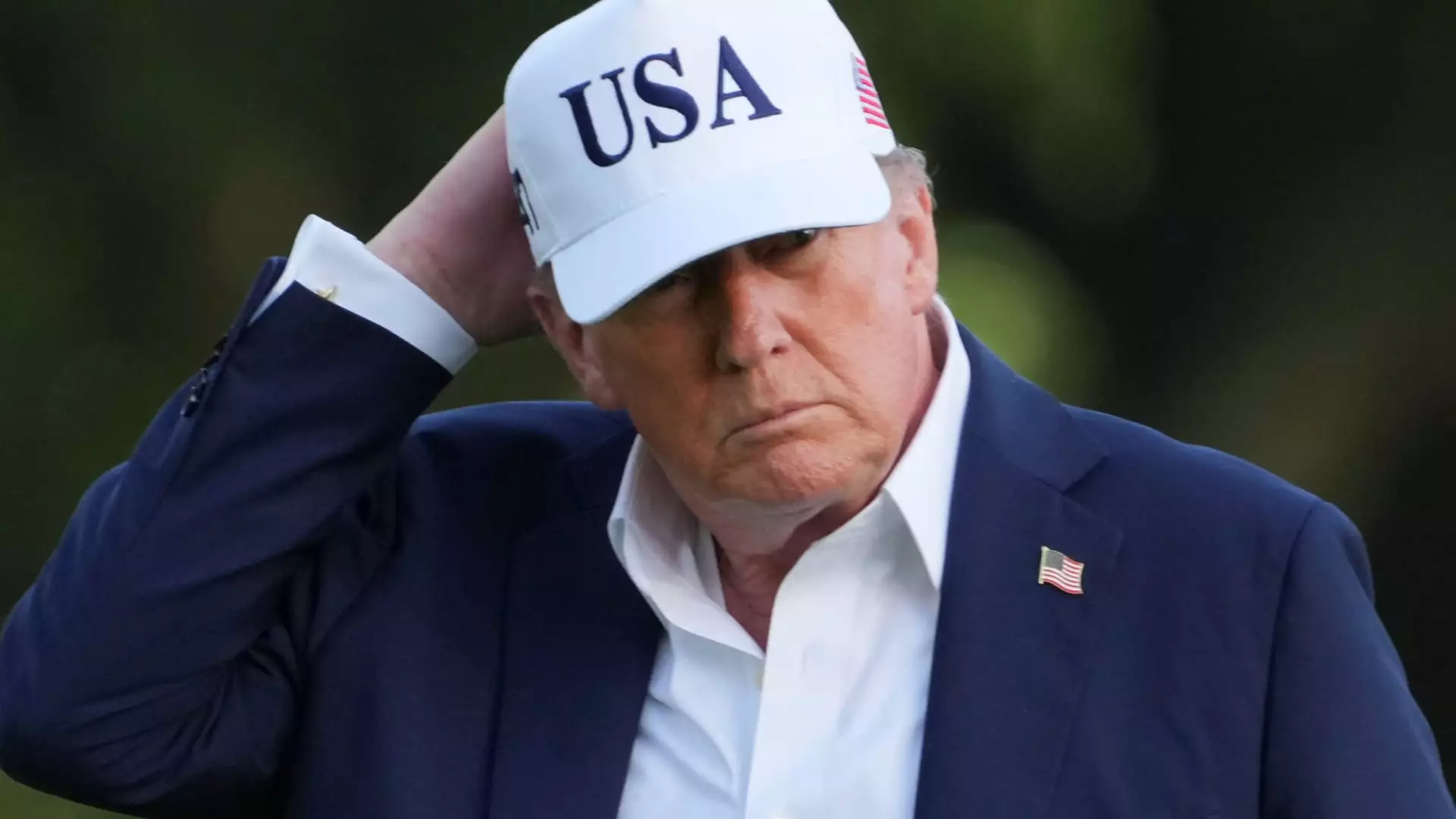In an era where global economic interconnectedness holds the key to shared prosperity, the American decision to impose sweeping 25% tariffs on imports from Japan and South Korea signals a perilous retreat into protectionism. Rather than engaging in thoughtful negotiation or embracing the benefits of open markets, this move exemplifies a misguided belief in economic siege as a solution. It raises fundamental questions about the true intent behind such measures: Is it about genuine economic reform, or is it driven by political posturing at a time when stability and international cooperation are desperately needed?
The Flawed Logic of Tariffs as Economic Cure-Alls
President Trump’s re-imposition of high tariffs on key allies reveals a stubborn reliance on an outdated economic doctrine—that tariffs serve as instruments to correct trade deficits and restore national strength. But this logic is profoundly flawed. Trade deficits, often portrayed as weaknesses, are, in reality, signs of complex global supply chains and consumer preferences. They reflect the nuanced interactions of modern economies, not necessarily exploitations or imbalance. To punish Japan and South Korea with punitive tariffs under the guise of correcting deficits demonstrates a superficial understanding of international economics. It disregards the fact that these countries are not only vital partners in technology and innovation but also essential sources of advanced manufacturing and investment.
The Political Rhetoric Cloaking Economic Self-Interest
Trump’s letters, which threaten retaliatory tariffs and transshipping crackdowns, appear more rooted in political theater than in pragmatic policy. These messages serve as threats designed to appease a domestic audience eager to believe in the myth of America’s economic victimization. Such aggressive tactics ignore the collateral damage that higher tariffs inflict on American consumers and businesses, which will inevitably face higher prices and reduced competitiveness. Moreover, based on rhetoric emphasizing “correction” and “reciprocity,” it becomes clear that the posture of hostility is ultimately about weakening alliances rather than fostering mutual growth.
Market Reaction: The Cost of Protectionism
The immediate fallout of this belligerent stance is evident in financial markets, which reacted with notable declines. The Dow, S&P 500, and Nasdaq all saw losses, reflecting investor fears about escalating trade conflicts and economic uncertainty. This backlash underscores a critical insight: protectionist measures, regardless of their intended purpose, tend to destabilize markets and hinder economic progress. It’s a stark reminder that short-term political gains cannot outweigh the long-term damage inflicted when international trade relations are strained by unilateral, punitive actions.
Questioning the Real Motivation: Is National Security at Risk?
While proponents argue that tariffs protect American jobs and industries, the real motivations often lie elsewhere. It’s convenient to frame tariffs as national security measures, but in reality, they often serve political convenience more than strategic necessity. The emphasis on trade deficits as an indicator of vulnerability is misleading; it ignores the greater threat of economic isolation and retaliatory measures from allies. True national security lies in fostering stable, collaborative relationships, not in erecting tariffs that risk pushing allies away and undermining global progress.
The current trajectory toward aggressive tariffs demonstrates a fundamental misunderstanding of modern economics and diplomacy. Instead of resorting to protectionism, the United States should leverage its influence to promote fair and balanced trade agreements rooted in mutual benefit, not economic dominance. As the world becomes increasingly interconnected, pursuing policies solely based on retaliation and deficit correction guarantees only economic and geopolitical setbacks. It’s time for a shift away from distractions of tariff wars toward a mature, cooperative global economic strategy that recognizes the importance of alliances and shared growth. The illusion that isolationist tactics can restore American prosperity is not only naive but dangerously shortsighted.


Leave a Reply